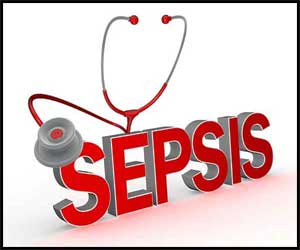- Home
- Editorial
- News
- Practice Guidelines
- Anesthesiology Guidelines
- Cancer Guidelines
- Cardiac Sciences Guidelines
- Critical Care Guidelines
- Dentistry Guidelines
- Dermatology Guidelines
- Diabetes and Endo Guidelines
- Diagnostics Guidelines
- ENT Guidelines
- Featured Practice Guidelines
- Gastroenterology Guidelines
- Geriatrics Guidelines
- Medicine Guidelines
- Nephrology Guidelines
- Neurosciences Guidelines
- Obs and Gynae Guidelines
- Ophthalmology Guidelines
- Orthopaedics Guidelines
- Paediatrics Guidelines
- Psychiatry Guidelines
- Pulmonology Guidelines
- Radiology Guidelines
- Surgery Guidelines
- Urology Guidelines
Anesthesia with sevoflurane for surgery in sepsis patients may improve outcomes: Study

Using anaesthetic drug sevoflurane during surgery in sepsis patients may improve outcomes finds a novel study.
The study published in The FASEB Journal suggests that the type of drug used in general anesthesia could be critical to the survival of patients with sepsis. Patients with sepsis often require surgery or imaging procedures under general anesthesia, yet there is no standard regimen for anesthetizing septic patients. Of volatile (inhaled) anesthetics, sevoflurane and isoflurane are the most commonly used drugs, despite their undetermined mechanisms of action.
Sevoflurane, also called fluoromethyl, is an ether inhalation anaesthetic agent used for the induction and maintenance of general anesthesia. It is a volatile, non-flammable, non-irritant, and easy-to-administer compound with a low solubility profile and blood-to-gas partition coefficient.
Sepsis is a potentially life-threatening condition caused by the body's response to an infection. The body normally releases chemicals into the bloodstream to fight an infection. Sepsis occurs when the body's response to these chemicals is out of balance, triggering changes that can damage multiple organ systems.If sepsis progresses to septic shock, blood pressure drops dramatically leading to death.
To conduct the experiment, researchers induced sepsis in a mouse model. They then separated the mice into three groups: the first received sevoflurane, the second received isoflurane, and the third acted as a control, receiving no anesthetic. Compared with the control, the first group exposed to sevoflurane displayed improved survival rates, less bacteria in their organs, and less splenic neutrophil apoptosis (i.e., the process through which immune cells die). The second group exposed to isoflurane, on the other hand, displayed worsened sepsis outcomes than the control.
“With the prevalence of sepsis on the rise and the mortality rates of severe sepsis already extremely high, it is crucial that our findings are validated in a human model,” said Koichi Yuki, MD, an associate professor of anesthesia at Boston Children’s Hospital, Department of Anesthesiology, Critical Care and Pain Medicine, Cardiac Anesthesia Division. “We are hopeful that one day, the findings from this study will improve the outcomes of patients with sepsis.”
“The clinical importance of this study cannot be overstated,” said Thoru Pederson, PhD, Editor-in-Chief of The FASEB Journal.

Disclaimer: This site is primarily intended for healthcare professionals. Any content/information on this website does not replace the advice of medical and/or health professionals and should not be construed as medical/diagnostic advice/endorsement or prescription. Use of this site is subject to our terms of use, privacy policy, advertisement policy. © 2020 Minerva Medical Treatment Pvt Ltd